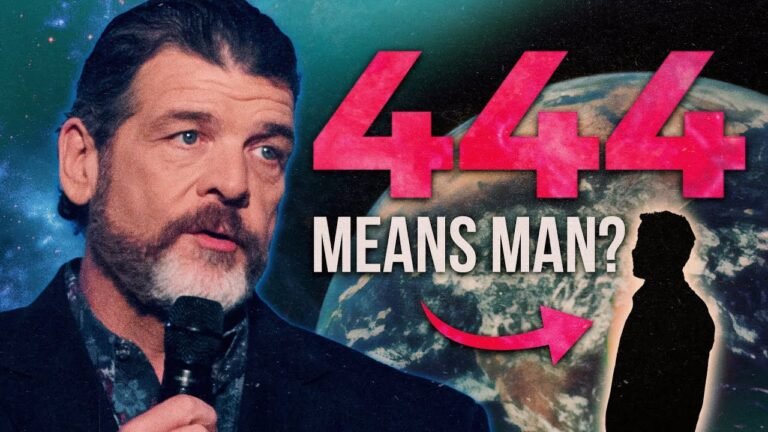Understanding the Unequally Yoked Concept in the Bible
The concept of being unequally yoked in the Bible, derived from 2 Corinthians 6:14, serves as a poignant reminder of the challenges that arise when individuals with differing values and beliefs come together. This biblical principle warns against forming close partnerships—whether in marriage, friendships, or business—where fundamental disparities can lead to discord and conflict. In an increasingly interconnected world, understanding the implications of being unequally yoked is essential for fostering harmonious relationships and maintaining spiritual integrity. Exploring this topic can illuminate the deeper significance of alignment in our personal and communal lives.
What is the meaning of unequally yoked in the Bible?
The phrase “unequally yoked” in the Bible draws a vivid metaphor from agriculture, where a yoke binds two animals together for a common task. When the animals are mismatched in strength or size, they struggle to work in harmony, leading to a disjointed effort and inefficient results. This imagery highlights the challenges faced in relationships where one partner is committed to faith and the other is not, creating a disconnect that can hinder both personal growth and shared goals.
In this context, being unequally yoked serves as a cautionary principle for individuals considering partnerships, whether in marriage or close friendships. The disparity in beliefs and values can lead to friction and misalignment in life’s pursuits, making it essential to find balance and compatibility for a more fulfilling journey together. This biblical concept encourages seeking unity in faith to foster deeper connections and shared aspirations.
What does the Bible teach regarding being in an unequally yoked relationship?
The Bible offers clear guidance on the importance of shared beliefs in relationships, emphasizing the need for harmony in spiritual values. In 2 Corinthians 6:14, it specifically warns against being unequally yoked with unbelievers, highlighting the potential challenges that arise when partners hold fundamentally different worldviews. This metaphor of being “yoked” suggests that two individuals working together must be aligned in purpose and direction to achieve common goals.
Moreover, the concept of being unequally yoked extends beyond romantic partnerships to include friendships and business relationships as well. When individuals with differing beliefs forge close connections, it can lead to conflict and misunderstandings, ultimately hindering personal growth and shared progress. The scripture serves as a reminder that compatibility in faith fosters unity and strengthens bonds, allowing for a more fulfilling and supportive relationship.
In essence, the biblical perspective encourages individuals to seek relationships that reflect shared values and beliefs, creating a solid foundation for mutual support and growth. Embracing this wisdom can lead to healthier, more harmonious connections that enrich both personal and spiritual journeys. By prioritizing alignment in faith, individuals can navigate life’s challenges together, fostering a deeper sense of understanding and commitment.
Does being unequally yoked pertain to marriage?
The concept of being unequally yoked is frequently discussed in the context of marriage, where one partner holds a faith while the other does not. However, this idea extends beyond romantic relationships and applies to any partnership between believers and non-believers. The essence of being unequally yoked lies in the fundamental differences in values, beliefs, and priorities that can lead to conflict and misunderstanding.
In various aspects of life—be it friendships, business partnerships, or community involvement—aligning oneself with individuals who share similar beliefs can foster harmony and mutual support. When believers and non-believers come together, the contrast in their worldviews may create challenges that could be avoided with like-minded partners. Ultimately, understanding the implications of being unequally yoked can encourage individuals to seek relationships that nurture their spiritual growth and well-being.
Bridging Faith: The Impact of Spiritual Partnerships
In an increasingly fragmented world, spiritual partnerships emerge as powerful conduits for connection, fostering understanding and growth among diverse communities. These collaborations transcend traditional boundaries, allowing individuals to share their beliefs and experiences, ultimately cultivating a sense of unity. By engaging in dialogue and joint initiatives, participants not only enrich their own spiritual journeys but also contribute to a broader tapestry of faith that celebrates shared values and mutual respect. Such partnerships remind us that, regardless of our differences, the quest for meaning and purpose is a universal endeavor, capable of bridging divides and inspiring collective action for the greater good.
Navigating Relationships: The Biblical Perspective
Navigating relationships through a biblical lens offers profound insights into love, respect, and commitment. The Scriptures emphasize the importance of treating others with kindness, encouraging us to foster connections built on trust and mutual understanding. Whether it’s friendships, family ties, or romantic partnerships, the teachings advocate for selflessness, urging us to consider the needs and feelings of others. By embodying these principles, we cultivate healthier relationships that not only withstand challenges but also flourish in grace and compassion. Ultimately, the biblical perspective guides us toward deeper connections that reflect the love and unity intended for humanity.
The Power of Harmony: Insights on Yoked Togetherness
In a world often divided by differences, the concept of yoked togetherness emerges as a powerful force for unity. This synergy, rooted in mutual respect and shared goals, fosters an environment where diverse perspectives can thrive. When individuals come together with a common purpose, they create a harmonious balance that not only amplifies creativity but also strengthens relationships. By embracing our interconnectedness, we unlock the potential to achieve remarkable outcomes that would be unattainable in isolation.
The beauty of yoked togetherness lies in its ability to transform challenges into opportunities for growth. As we navigate life’s complexities, the support and understanding found in collaborative efforts can lead to innovative solutions and deeper connections. This collective strength encourages us to celebrate our differences, recognizing that each unique contribution enriches the whole. In this dance of collaboration, we discover that harmony is not merely the absence of conflict, but an active engagement in building a shared vision for the future.
The concept of being unequally yoked in the Bible serves as a powerful reminder of the importance of harmony in relationships, whether they are romantic, professional, or spiritual. By understanding the implications of this principle, individuals can make more informed choices that align with their values and beliefs. Embracing partnerships built on mutual respect and shared convictions fosters a stronger foundation for personal growth and collective purpose, ultimately enriching the journey of faith and life itself.







